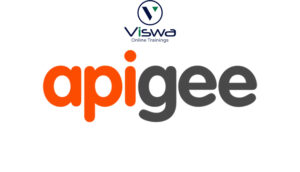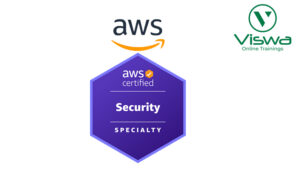Salesforce (Admin + Dev) Certification Training
One of the top providers of online IT training worldwide is VISWA Online Trainings. To assist beginners and working professionals in achieving their career objectives and taking advantage of our best services, We provide a wide range of courses and online training.
Learners : 1080
Duration : 30 Days
About Course
We’ve created a training program for Salesforce Admin + Development certification that will make sure you understand the fundamentals of becoming an App Builder and Administrator. You will learn how to set up Salesforce to gather, examine, and retrieve crucial customer data as well as how to use Salesforce Lightning to build applications in this Salesforce class. Enrol today to earn your certification.
Salesforce Training Course Syllabus
✔ Introduction
✔ Classic vs Lightning Experience.
✔ Organization Setup ( Company Profile, User Interface, Editions)
✔ Salesforce Account Creation (User Setup)
✔ Security Control Mechanism ( OWD, Role Hierarchy, Sharing Rule Mechanism)
✔ User Access Control ( User Management, Profiles, Roles, Permission Sets, Apps)
✔ Opportunities, Campaigns, Leads
✔ Standard and Custom Objects, Field Dependency, Controlling Field, Field Level
✔ Salesforce Security
✔ Email Templates, Workflow Process, and Approval Process
✔ Validation Rules.PageLayouts and RecordTypes
✔ Import Data Wizard and Data Loader
✔ Domain Management, Formula Fields
✔ Reports and Dashboards
✔ Data Models and Data Management
✔ Introduction to APEX Programming
✔ Developer Console
✔ Datatypes used in APEX Programming
✔ Classes, Objects
✔ Access Modifiers
✔ Collections ( Lists, Sets, Maps)
✔ Subjects
✔ Workbench
✔ SOQL,SOSL
✔ APEX Triggers
✔ DML Operations
✔ Email Programming
✔ BatchAPEX Jobs
✔ Visualforce Pages
✔ APEX Components and APEX Input Components
✔ Testing Methods
✔ Arrays
✔ Governor Limits in Salesforce
✔ Database Class, Database.Query Locator
✔ Advanced Development ( AURA Components + LWC)
✔ CPQ
✔ TESTING
✔ QA
| Live Instructor Based Training With Software |
| Lifetime access and 24×7 support |
| Certification Oriented content |
| Hands-On complete Real-time training |
| Get a certificate on course completion |
| Flexible Schedules |
| Live Recorded Videos Access |
| Study Material Provided |
Salesforce Training - Upcoming Batches
7th NOV 2022
8 AM IST
Coming Soon
AM IST
5th NOV 2022
8 AM IST
Coming Soon
AM IST
Don't find suitable time ?
CHOOSE YOUR OWN COMFORTABLE LEARNING EXPERIENCE
Live Virtual Training
-
Schedule your sessions at your comfortable timings.
-
Instructor-led training, Real-time projects
-
Certification Guidance.
Self-Paced Learning
-
Complete set of live-online training sessions recorded videos.
-
Learn technology at your own pace.
-
Get access for lifetime.
Corporate Training
-
Learn As A Full Day Schedule With Discussions, Exercises,
-
Practical Use Cases
-
Design Your Own Syllabus Based
Salesforce Online Training FAQ'S
The delivery and use of corporate software have fundamentally been transformed by SalesForce. Sales Force has established the appropriate method for connecting with clients because its software is cloud-based and therefore doesn’t require IT specialists to set up an expert. Salesforce makes it easy to establish long-lasting relationships with customers, pinpoint their needs, solve issues more quickly, and roll out customer-focused products.
Get ahead in your career by learning Linux Admin through VISWA Online Trainings
In SalesForce, custom objects refer specifically to database tables that store data related to your company in Salesforce.com.
Once the custom object is defined, the subscriber can perform the following tasks:
- Create custom fields
- Relate the custom object to other records
- Track events and tasks
- Build page layouts
- Create a custom tab for the custom object
- Analyze custom object data
- Create dashboards and reports
- Share custom tabs, custom apps, custom objects, and various other related components.
None of these tasks can be accomplished until the custom object has a definition.
A Self-Relationship is a lookup relationship to the same object. It is this premise that allows users to take the object “Merchandise” and create relationships with other objects.
Reviews
 Lavanya Posina2024-09-30To get the SAP S4HANA MM training is really worth from VISWA Technologies. I would like to thank you for providing an excellent training.
Lavanya Posina2024-09-30To get the SAP S4HANA MM training is really worth from VISWA Technologies. I would like to thank you for providing an excellent training. Krishna Grandhi2024-09-19I attended PBCS course. Trainer has good knowledge and his explanation is easy to understand. The support team is also supportive during the training period. Overall experience is good.
Krishna Grandhi2024-09-19I attended PBCS course. Trainer has good knowledge and his explanation is easy to understand. The support team is also supportive during the training period. Overall experience is good. Siddhartha Mothukuri2024-09-10Learnt SAP EWM and it has been a really good experience with VISWA Online Trainings and trainer has been excellent in terms of his understanding in business as well as SAP. Thank you
Siddhartha Mothukuri2024-09-10Learnt SAP EWM and it has been a really good experience with VISWA Online Trainings and trainer has been excellent in terms of his understanding in business as well as SAP. Thank you Lakshmiprasanna Annem2024-08-01Thanks chaitanya arrange for sap bw on Hana job support. I will recommend definitely anyone.
Lakshmiprasanna Annem2024-08-01Thanks chaitanya arrange for sap bw on Hana job support. I will recommend definitely anyone. VINOD reddy2024-07-23Amazing Oracle Transportation Management (OTM) training! Definitely recommend.
VINOD reddy2024-07-23Amazing Oracle Transportation Management (OTM) training! Definitely recommend. Arvind P2024-06-28Good institute. Very responsible. As a trainer I got a good experience with them
Arvind P2024-06-28Good institute. Very responsible. As a trainer I got a good experience with them srinivasulu p2024-05-14I have recently enrolled azure cloud security training. There was lots of interaction sessions. It was best online learning platform.
srinivasulu p2024-05-14I have recently enrolled azure cloud security training. There was lots of interaction sessions. It was best online learning platform. Mahendra Reddy2024-05-14I would definitely recommend it anyone looking for generative AI course. This is friendly course thanks phani kumar
Mahendra Reddy2024-05-14I would definitely recommend it anyone looking for generative AI course. This is friendly course thanks phani kumar




